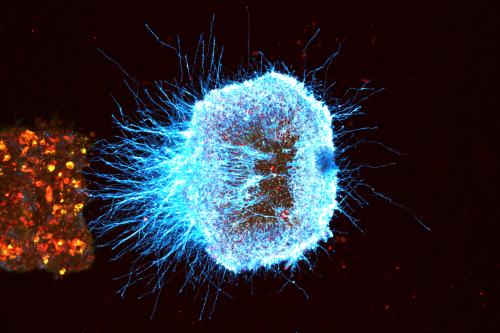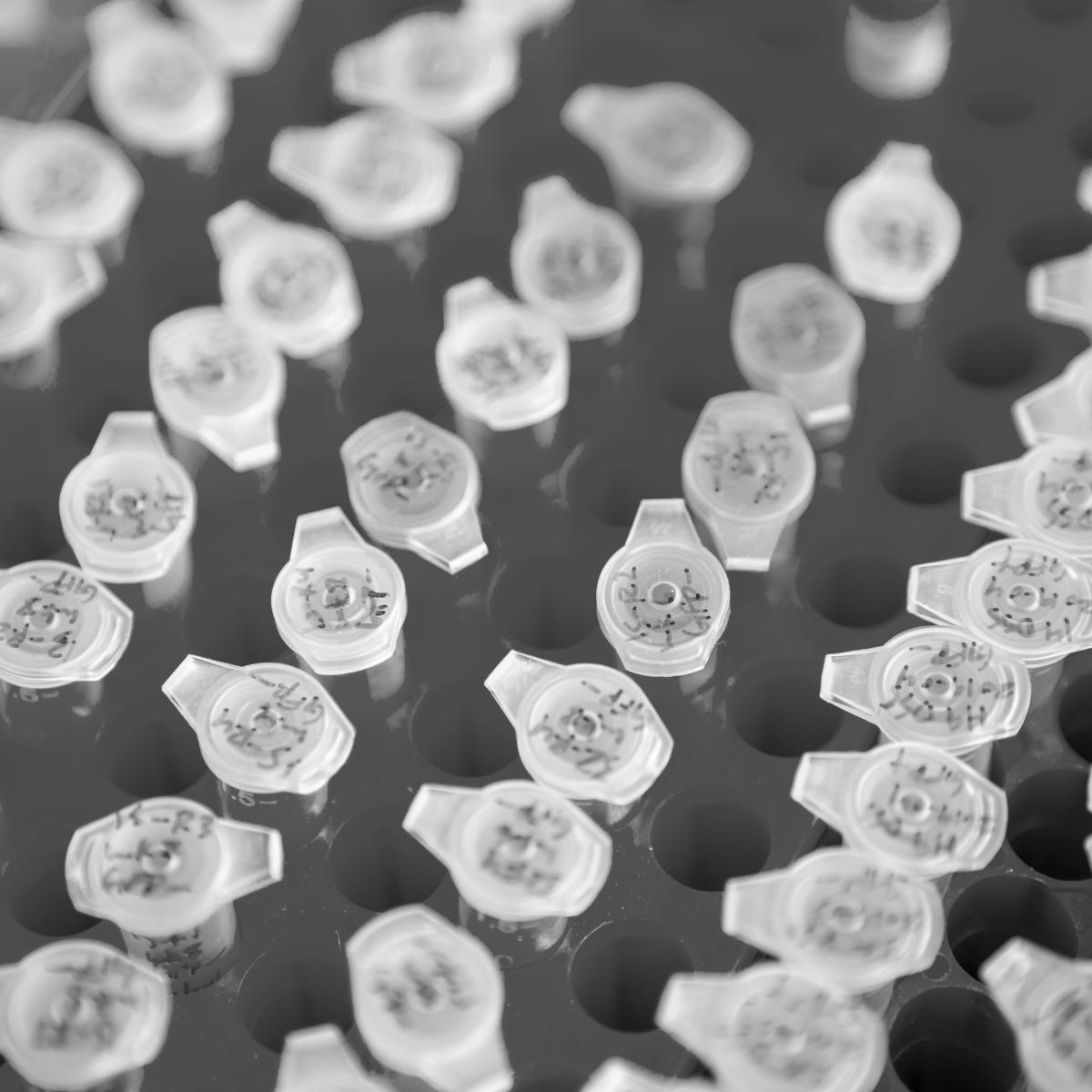

Refers to a therapeutic product that is specifically formulated for or customized to a particular patient. In patient-specific Refers to a therapeutic product that is specifically formulated for or customized to a particular patient. In patient-specific cell therapies, a patient's cells are either genetically engineered, expanded or reprogrammed and differentiated to produce cells that same patient needs for treatment. patient-specific Refers to a therapeutic product that is specifically formulated for or customized to a particular patient. In patient-specific cell therapies, a patient's cells are either genetically engineered, expanded or reprogrammed and differentiated to produce cells that same patient needs for treatment. cell therapies, a patient's cells are either genetically engineered, expanded or reprogrammed and differentiated to produce cells that same patient needs for treatment.
The capacity some cells have to switch from one cell type to another and — in some cases — back again. The plasticity The capacity some cells have to switch from one cell type to another and — in some cases — back again. The plasticity of certain tissue-specific stem cells enables them to transform into cell types that would normally be considered outside their normal range of differentiation. plasticity The capacity some cells have to switch from one cell type to another and — in some cases — back again. The plasticity of certain tissue-specific stem cells enables them to transform into cell types that would normally be considered outside their normal range of differentiation. of certain tissue-specific stem cells Mature stem cells that are found in many adult organs and tissues (such as the brain and muscles). Unlike pluripotent stem cells, they can only produce the cell types found in the organ or tissue they inhabit. They're responsible for replacing cells that have been lost due to natural wear and tear, injury and illness throughout life; however, their ability to do so decreases with age. tissue-specific stem cells Mature stem cells that are found in many adult organs and tissues (such as the brain and muscles). Unlike pluripotent stem cells, they can only produce the cell types found in the organ or tissue they inhabit. They're responsible for replacing cells that have been lost due to natural wear and tear, injury and illness throughout life; however, their ability to do so decreases with age. enables them to transform into cell types that would normally be considered outside their normal range of differentiation The process by which stem cells transform into specific, specialized cell types with distinct functions and features. differentiation The process by which stem cells transform into specific, specialized cell types with distinct functions and features..
Stem cells Cells that have the ability to differentiate into multiple types of cells and make an unlimited number of copies of themselves. Stem cells Cells that have the ability to differentiate into multiple types of cells and make an unlimited number of copies of themselves. that can undergo self-renewal When stem cells self-renew, they divide to make identical copies of themselves. self-renewal When stem cells self-renew, they divide to make identical copies of themselves. and differentiation The process by which stem cells transform into specific, specialized cell types with distinct functions and features. differentiation The process by which stem cells transform into specific, specialized cell types with distinct functions and features. to become any cell type found in the body. The two major types used in research are embryonic stem cells Pluripotent stem cells that give rise to every cell type in the adult body. They are derived from the inner cell mass of a blastocyst. embryonic stem cells Pluripotent stem cells that give rise to every cell type in the adult body. They are derived from the inner cell mass of a blastocyst. and induced pluripotent stem cells iPS cells are cells taken from a patient that are reprogrammed so that they can undergo differentiation into any type of cell in the body. By maintaining the genetic code of the patient, iPS cells play a crucial role in disease modeling and regenerative medicine. induced pluripotent stem cells iPS cells are cells taken from a patient that are reprogrammed so that they can undergo differentiation into any type of cell in the body. By maintaining the genetic code of the patient, iPS cells play a crucial role in disease modeling and regenerative medicine..
Descendants of stem cells Cells that have the ability to differentiate into multiple types of cells and make an unlimited number of copies of themselves. stem cells Cells that have the ability to differentiate into multiple types of cells and make an unlimited number of copies of themselves. that can further differentiate to produce one or more specialized cell types. They are more limited than pluripotent stem cells Stem cells that can undergo self-renewal and differentiation to become any cell type found in the body. The two major types used in research are embryonic stem cells and induced pluripotent stem cells. pluripotent stem cells Stem cells that can undergo self-renewal and differentiation to become any cell type found in the body. The two major types used in research are embryonic stem cells and induced pluripotent stem cells. in that they cannot self-renew indefinitely and can only produce a limited range of specific cell types. For example, neural progenitor cells Descendants of stem cells that can further differentiate to produce one or more specialized cell types. They are more limited than pluripotent stem cells in that they cannot self-renew indefinitely and can only produce a limited range of specific cell types. For example, neural progenitor cells can only produce neurons. progenitor cells Descendants of stem cells that can further differentiate to produce one or more specialized cell types. They are more limited than pluripotent stem cells in that they cannot self-renew indefinitely and can only produce a limited range of specific cell types. For example, neural progenitor cells can only produce neurons. can only produce neurons.
